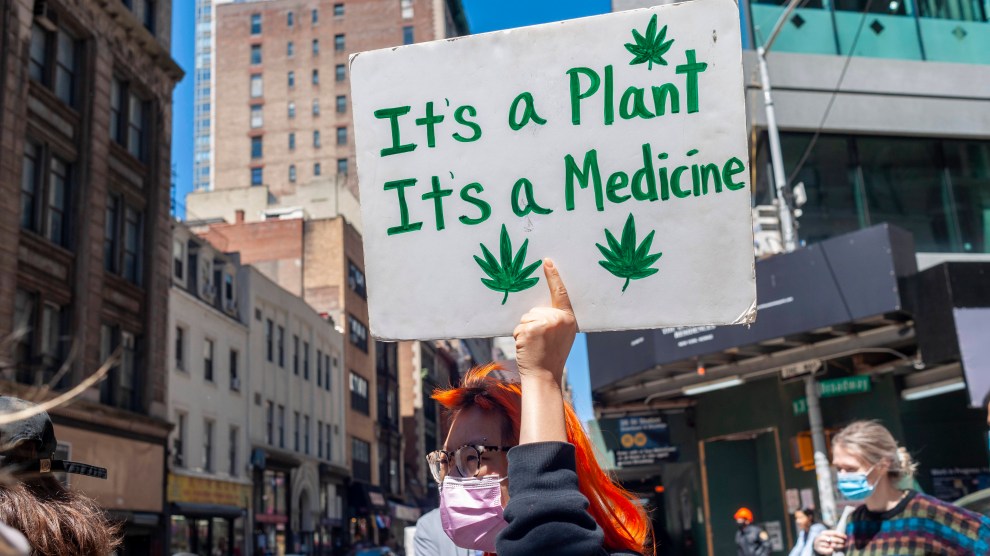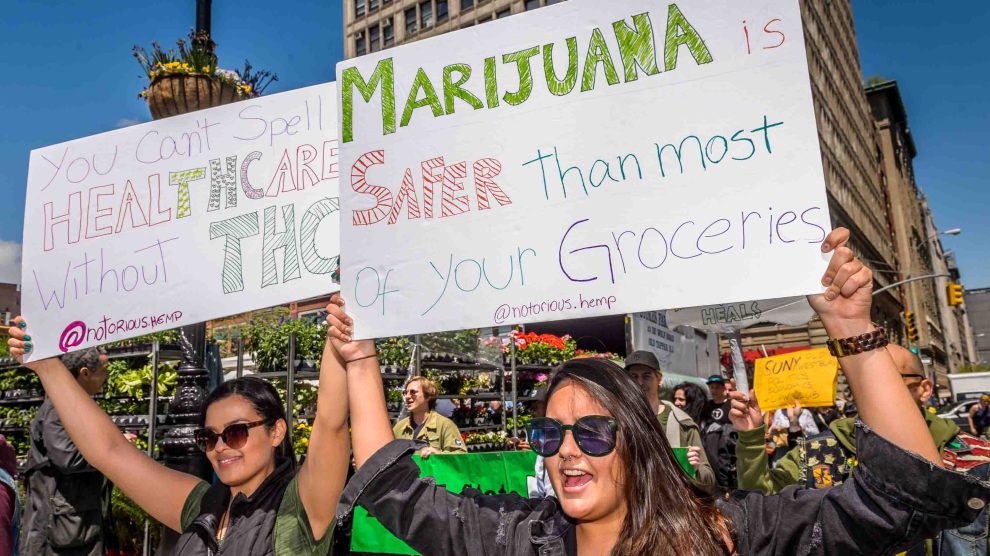
Richard B. Levine/Levine Roberts/Zuma
Most Americans think it’s time to legalize weed. A whopping 91 percent of our Republic says that marijuana should be allowed for medical use, according to the Pew Research Center, and nearly two thirds support legalizing it recreationally, as well. Recreational weed is already legal in 18 states, and decriminalized in 13 more. It seems like federal legalization is only a matter of time.
But Congress isn’t always the best conduit for making public opinion into federal law—it just happens to be the only one we have. So, when the House approved a bill to decriminalize marijuana today, the vote fell mostly along party lines and came with the knowledge that there’s not too much hope for full legalization.
Sure, there were a few defectors on either side. Two Democrats—Reps. Henry Cuellar (Texas) and Chris Pappas (N.H.)—voted against the bill. Three Republicans voted for it: Reps. Matt Gaetz (Fla.), Brian Mast (Fla.) and Tom McClintock (Calif.). And advocates for drug reform now face a Senate that’s at least somewhat sympathetic, with Majority Leader Chuck Schumer planning to introduce his own legislation. But Democrats are unlikely to win many Republican votes with their current proposal, which includes social equity programs to redress the harm done to communities of color by the war on drugs. We’ve been here before. The House voted to legalize weed in 2020, too.
Plus, it’s not yet clear where President Biden stands. Biden has historically supported the war on drugs, and last year, his administration fired five staffers who admitted to past cannabis use.
I would argue there’s another under-discussed problem here, too: our gerontocracy. In addition to Republicans’ general tough-on-crime opposition to weed, this is another major factor plaguing the prospect of legal pot. The Pew study notes that just 32 percent of Americans aged 75 and older support legalizing recreational and medical weed—far lower than any other age group. That could be a problem in Congress’ upper chamber, which has 11 senators over the age of 75.
So, if you live in a non-legal state, don’t get your hopes up. The overwhelming support of the public—and the prospect of an easy legislative accomplishment to tout in the midterms—just isn’t enough to get lawmakers on board.








